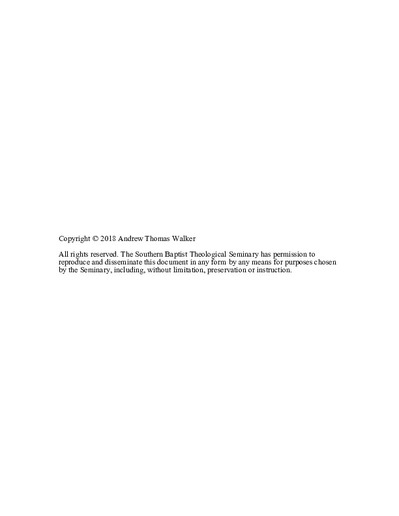Religious Liberty in Contemporary Evangelical Social Ethics: An Assessment and Framework for Socio-political Challenges
Subject
Christian ethicsEvangelicalism
Church and state
Christianity and politics
Political theology
Public theology
Freedom of religion
Abstract
Based on a review of the academic literature, evangelical public theology often lacks a systematic, theologically grounded social ethic concerning religious liberty. The resulting impasse is one where religious liberty lacks distinctly evangelical contours. Modern and contemporary religious liberty discussions have been ceded, almost exclusively, to political and legal philosophy. At the same time, religious liberty is a foundational principle for evangelical public theology because it addresses issues of how evangelicals enter the public square as a religious people. Additionally, a doctrine of religious liberty is vital for establishing the relationship between the church and state in society. Theological warrant is needed to establish a doctrine of religious liberty on evangelical grounds, and, correspondingly, the lack of consensus or framework around religious liberty jeopardizes the possibility of developing a truly evangelical understanding of religious liberty for public theology.
This dissertation seeks to remedy this gap in evangelical public theology and social ethics by grounding religious liberty in the biblical categories of eschatology, anthropology, and soteriology. Chapter one examines the literature surrounding evangelical proposals around religious liberty. Chapters 2 through 4 offer a constructive proposal for religious liberty oriented around the themes of the kingdom of God (eschatology), the image of God (anthropology), and the mission of God (soteriology). Chapter 5 concludes by offering concern that secular ideologies lack sufficient explanatory power to extend a principled account of religious liberty.

